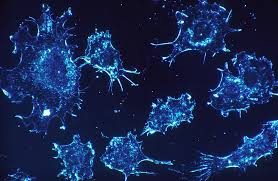Kidney stones are a common health issue, especially for men. They occur when minerals and salts build up in the kidneys, eventually forming hard deposits. While some kidney stones pass on their own, others may lead to symptoms that disrupt your daily life and signal the need for specialized care. Here’s when it’s time to reach out to a urology clinic to help you take steps to protect your health and find relief from discomfort:
Symptoms That Require Medical Attention
While mild pain or discomfort sometimes resolves with rest and hydration, some symptoms should not be ignored. Symptoms of kidney stones can include severe pain in the back or side, nausea, vomiting, or noticing blood in your urine. These signs often mean it’s time to seek help from a healthcare professional, specifically a urologist:
Blood in Your Urine
Seeing blood in your urine, called hematuria, can be alarming. Even if you notice it only once, it’s wise to contact a medical provider. Stones may injure the tissues in the urinary tract as they move, causing bleeding. A urologist can help determine the source and offer solutions.
Severe Pain When You Urinate
Passage of stones through the ureter may lead to sharp or severe pain, especially during urination. If the pain intensifies or doesn’t subside, don’t hesitate to seek support. Persistent pain might signal that the kidney stone is lodged or causing other issues.
Fever or Chills
A fever or chills alongside kidney stone symptoms is a red flag. These may indicate an underlying infection, which can sometimes develop when a stone blocks urine flow. Urinary tract infections in this situation are potentially dangerous and should be evaluated by a professional as soon as possible.
Frequent Urges to Urinate
Kidney stones can sometimes create a persistent urge to urinate. You might find yourself visiting the bathroom more often than usual or noticing discomfort when your bladder is empty. This symptom may indicate irritation in your urinary tract or a stone blocking the urine flow.
Family History of Kidney Stones
People with a family history of kidney stones face a higher risk of recurring stones or complications. If someone in your family has dealt with kidney stones, your chances of experiencing them rise, and your care might require extra attention. Meeting with a urologist provides the opportunity to discuss strategies for prevention and management tailored to your risk.
What to Expect When You See a Urologist
A visit with a urology clinic typically involves a conversation about your symptoms, a physical examination, and imaging tests, such as an ultrasound or a CT scan. These tools help the doctor detect the size, shape, and location of the stone. Urologists also review your medical and family history to create a plan that meets your needs, which could range from watchful waiting to different forms of treatment.
Find a Urology Clinic for Help with Kidney Stones
Kidney stones may bring frustration and sharp discomfort. Common symptoms of kidney stones include severe pain in the back or side, blood in the urine, nausea, vomiting, and frequent or painful urination. Acting early and connecting with a urologist empowers you to take control of your health and ease your concerns. If you experience any of the symptoms above, reach out to a healthcare provider.

